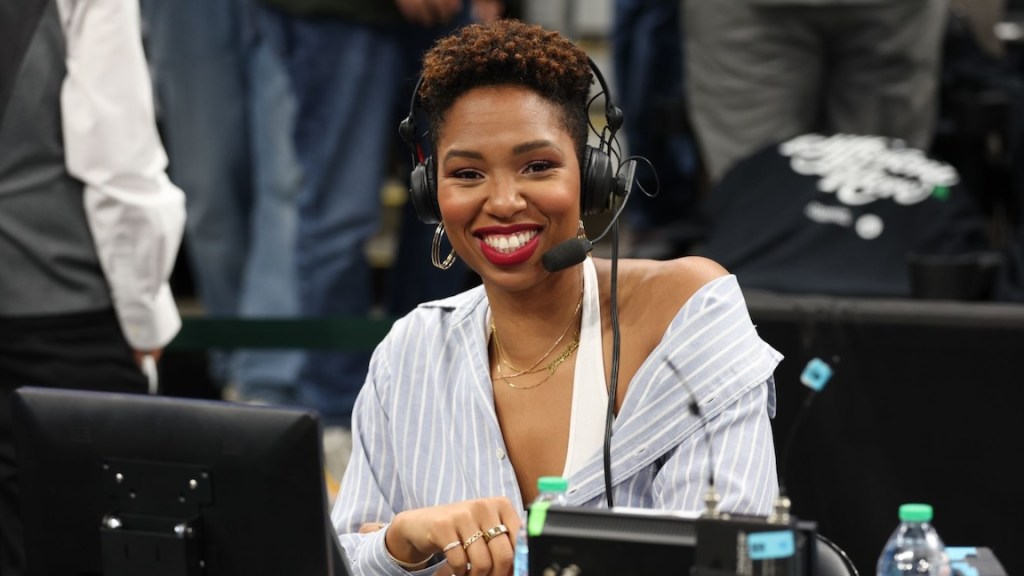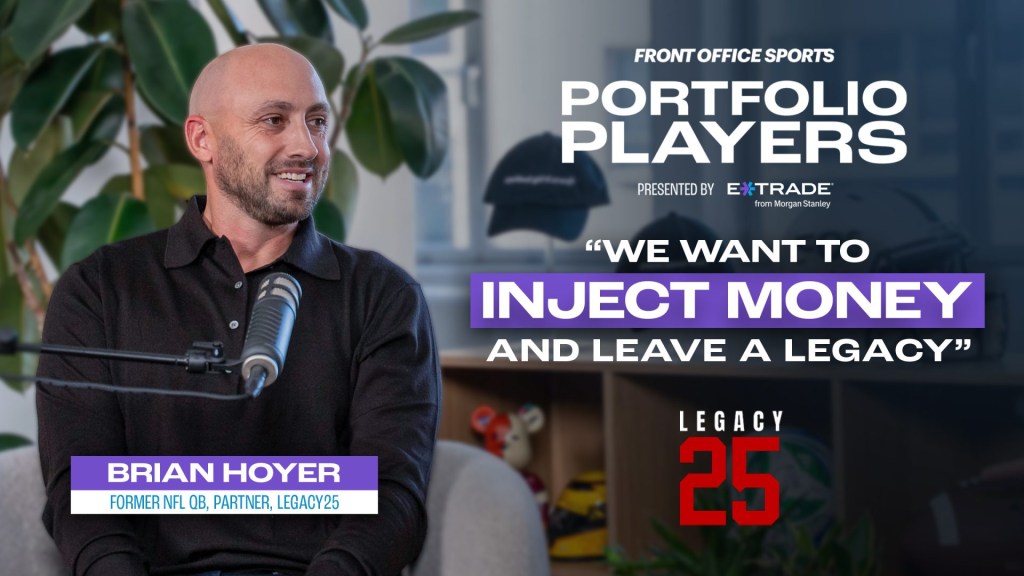By: Casey Sudzina, @CaseySudzina
Let me start with saying I realize there are struggles for everyone in the work force — not just women. I do not want to take anything away from the hard work professionals put in day in and day out. I also realize it is hard to be a woman in any professional environment, for reasons many may not realize. I am here to bring those reasons to life. It is especially difficult for women in the sports industry simply because it is a male dominated field. Many other work forces have a fairly equal gender split, but if you look at various front office staff for any sport organization, they are male dominated (especially the Team Owner, General Manager, and CEO/CFO positions).
There are very important strides that are currently being taken to encourage gender equality in the sports industry. The NFL recently created a position to investigate this particular issue (PROPS SAM RAPOPORT!). Sam Rapoport is the woman hired into this position, and ESPN recently wrote an article on this. She explains her position was created to, “create programming to show [women] the pipeline is open to them.” She touches on the sensitive, and very valid, issue that it is difficult for women to scout/coach football if they have never actually played before (mind you, Sam did play professional women’s football). She explains you do not have to have played a sport to be an excellent coach. She touches on Adam Gase, a coach for the Miami Dolphins, who never played football (college or NFL) prior to coaching. She has a very moving quote:
“It’s not a prerequisite, but in order to be a good coach, you have to have a general knowledge of football and you have to be able to relay that info in a coherent way to players. And, to me, that translates to male or female. Do you know your stuff, and are you able to relay that in a coherent way?”
I would say Rapoport hits the nail on the head with this statement — very powerful stuff there. My personal favorite part of the article is Rapoport explaining her application to her NFL internship. She was a quarterback for the Montreal Blitz, and when she sent her resume and application in, she included a picture of herself in pads and a football with the writing, “What other quarterback could accurately deliver a football 386 miles?” in Sharpie. She explains she got the internship, because “[her application] stood out among the other applicants.” The article is definitely worth the read.
The point is the gender norms are starting to be addressed. Initial steps such as the creation of a position in the NFL can start a powerful movement and, maybe eventually, it can eliminate some of these unspoken gender norms that exist in the workplace. Below are pictures of Sam Rapoport in action and in the workplace. Go Sam!


About six months ago, during my internship with Columbus Crew SC, I read a book called Lean In by Sheryl Sandberg, and it was one of the best decisions I have ever made (Thank you Sheryl, for making me feel like I can be everything and anything I want to be.) Her book goes through many different struggles women face in the work force due to societal “norms” about women. There were certain situations day-to-day that I was faced with, and I was unsure how to handle them, and after speaking about these issues with a mentor, she recommended I read the book. I will touch on just a few topics.
There is one idea I would like to bring to your attention before I begin touching on topics. I feel it is something important to consider that I feel I stand as an equalist, not a feminist. There are many men who advocate for women, and there are many women who advocate for men. It goes both ways; it’s a team effort. I would love to see equal promotion, salary, and opportunity. I think we are making great strides towards this, and if we keep the ball rolling, I think it will continue to progress towards a more equal workplace.
1. LEAN IN.
This probably sounds redundant, being as it is the title of the book, but this is the most important concept in the book (Obviously Casey, or she would not have titled the book Lean In). Leaning in is something that can be hard for women to do in a workplace. In American society, women can be afraid in the workplace. There is a majority of men in CEO/COO/CFO roles, especially in sports. The Bills, Lions, 49ers, Bears, and the Browns are the only five NFL organizations that have females in an ownership role.
Women can sometimes be disregarded when they voice their opinions, or rather males are more highly regarded and women can become disregarded. Sandberg encourages women to LEAN IN. Lean in to your workplace. Voice your opinions. Be attentive. Apply for promotions. Be a leader. Reach out to people who work under you. Be a leader.
2. SIT AT THE TABLE.
This is a crazy phenomenon that I have seen firsthand. I have sat in meeting rooms where women automatically sit in the back of the room and men go to the front. The presenter may ask if there are any comments and men raise their hands, not women. I have actually witnessed women raising their hands and then lowering them because a male raised his hand to comment! Why? It is vital that women give their opinions and ideas in the workplace. If not, men will continue to make decisions. You cannot influence a decision if you are not willing to speak on the decision. Women need to sit at the table. Sit in the front row. Voice your opinion. Heck, argue someone else’s opinion! Make sure your voice is heard.
3. REWARDS FOR THE MOST PROPER WOMAN.
I think this particular topic has seen the most strides in recent times, but it still exists. This relates back to the 20th century and how women were supposed to be proper. Women were encouraged to make sure their bodies were covered, be soft spoken, and make sure they always looked “pretty.” Some of those ideas exist today without a doubt, but I do feel it is being combatted more than some of the other issues in the workplace. Sandberg uses an example of a Gymboree campaign that made onesie shirts saying, “Smart like Daddy” and “Pretty like Mommy.” She explains that this “…did not happen in 1951. It happened in 2011.” This is so concerning. Most people will read those onesies and not question it. I am sure there were many people that bought them and their relatives got a chuckle about them at family birthday parties. If you ask a child what they want to be when they grow up, you want to hear positions of power come from both little girls and little boys. I do not want to hear a little girl say, “I want to be a princess,” while a little boy says, “I want to be President.” We as a society have to make a conscious effort to not reward these behaviors. So, next time you see a degrading onesie, make sure to withhold your chuckles.
4. THE GREY AREA BETWEEN MEAN AND NICE.
Do you want to be successful or liked? This is a question I have asked myself, and I am sure there are plenty of other females who have done the same. Why can’t you be both? Sandberg lays this situation out so perfectly in her book that I feel I have to include her example. In 2003 Columbia’s Business School ran a study on this topic. They used a successful, real life entrepreneur named Heidi Roizen in the study. Sandberg tells us they described her success being attributed to her, “outgoing personality… and vast personal and professional network [that] included many of the most powerful business leaders in the technology sector.”
All the students in the study read the same description for the entrepreneur with just one twist: half of the students read about Heidi, while the other half read about “Howard.” The students rated the two as equally competent, but the poll indicated that Howard was more appealing. Heidi was seen as selfish. Clearly Howard was made up, but the researchers were able to prove that women in successful positions are more disliked naturally than men in those same exact positions, even when they have the same exact capabilities and experience. I have experienced this in my various workplaces. My authority has been questioned, even if I give the exact answer that a male colleague had given. I have had situations where people have tried to overlook my opinion because I was friendly, and they took my friendliness as submissiveness. I then tried to alter my behavior to be more assertive so that I was not disregarded, but I became disliked and told I was mean, inconsiderate, or too aggressive. So how can you be both nice and assertive? It seems to be a grey area, and to be honest, I do not have an answer.
5. ROLES IN MARRIAGE CARRY OVER INTO THE WORKPLACE.
I want you to take a minute to think about your parents and the way they divided up work in your home growing up. I am willing to bet most of your mothers did laundry, cooked dinner, organized the family calendar, packed your lunches, cleaned the house, etc. I am also willing to bet most of your fathers were called to the rescue when it came to hanging up your newest shelf, putting your desk together, taking out the trash, washing the cars, or mowing the lawn. This is not meant to be degrading on either side of the spectrum; I just want to make a point.
If some of you readers did not have this sort of household experience, great! There is a stride towards breaking gender norms. All of these ideas of a mother doing more of the “home” duties carry over into the workplace. Which of your parents took time off of work when you were born? Hopefully it was shared and equal time, but I am willing to bet your mother took maternity leave while your father went to work. I know this sort of thing is uncomfortable to talk about, but it is relevant! Companies are starting to grant paid paternity leave for males, so this is a stride. Families should have the option to share this role. It is hard to take time off of work, let alone to take off months or a year, or maybe even two years to raise a child. You are behind when you come back. Maybe you are looked down upon for leaving, especially if you left on paternity leave. That should not be a stigma. I applaud couples that are able to equally split home duties as well as work duties. I understand that sometimes certain things just work in a marriage, and that’s fine, but we must pay more attention to combatting the home stigma that most certainly carries over into the workplace.
How can we fix these items? Simple. Make a conscious effort to talk about the issues.
I applaud the NFL for understanding the gender gap. They are starting to talk about it. They even created a position for someone to enforce talking about it. The more we as a society can talk about the issues, the more we can combat them. This is not a blame game. Everyone is at fault for the norms. So, men need to be conscious of considering female opinion just as much as females need to be conscious of leaning in to their environments.

















